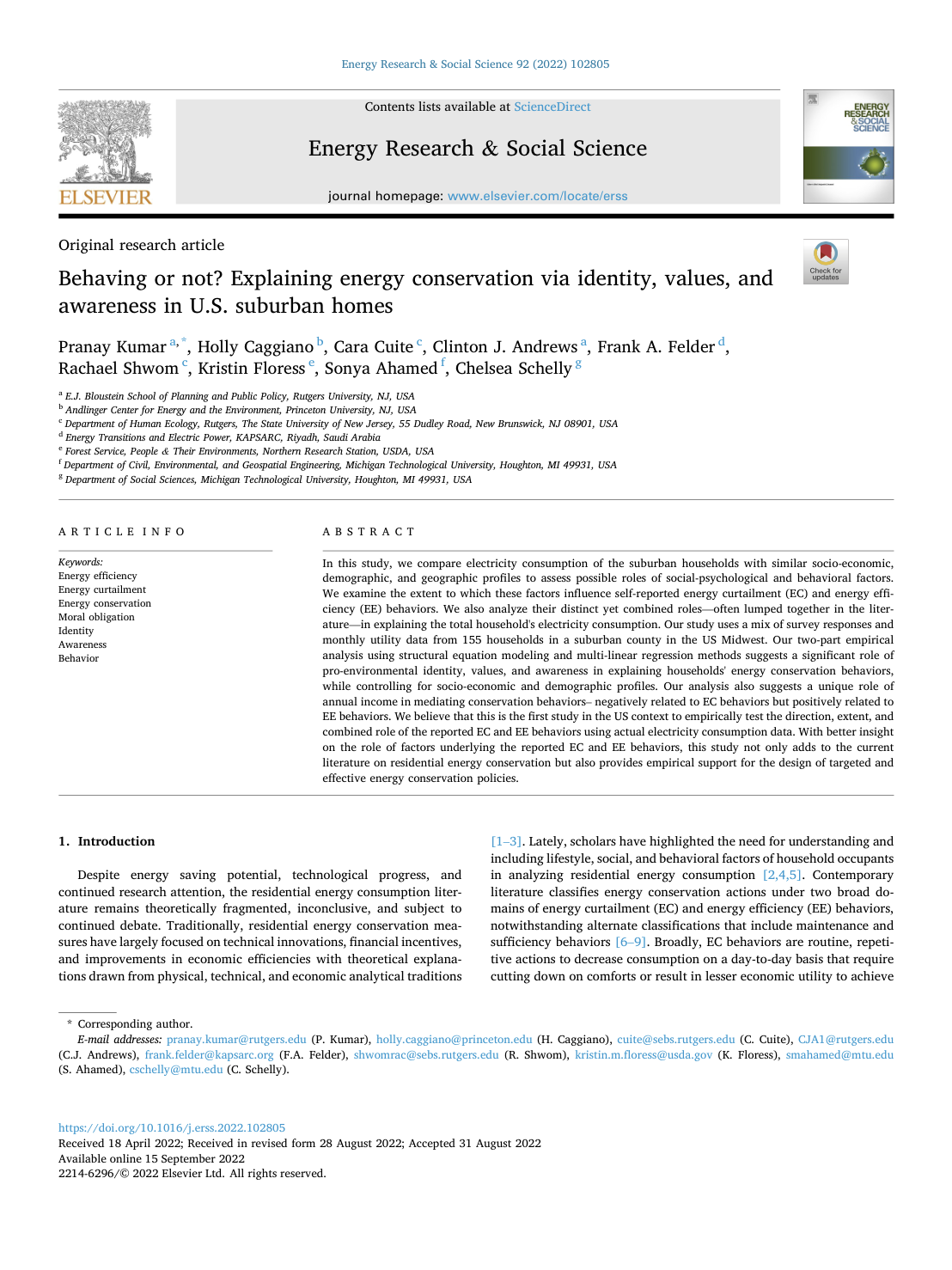In this study, we compare electricity consumption of the suburban households with similar socio-economic, demographic, and geographic profiles to assess possible roles of social-psychological and behavioral factors. We examine the extent to which these factors influence self-reported energy curtailment (EC) and energy efficiency (EE) behaviors. We also analyze their distinct yet combined roles—often lumped together in the literature—in explaining the total household’s electricity consumption. Our study uses a mix of survey responses and monthly utility data from 155 households in a suburban county in the US Midwest. Our two-part empirical analysis using structural equation modeling and multi-linear regression methods suggests a significant role of pro-environmental identity, values, and awareness in explaining households’ energy conservation behaviors, while controlling for socio-economic and demographic profiles. Our analysis also suggests a unique role of annual income in mediating conservation behaviors– negatively related to EC behaviors but positively related to EE behaviors. We believe that this is the first study in the US context to empirically test the direction, extent, and combined role of the reported EC and EE behaviors using actual electricity consumption data. With better insight on the role of factors underlying the reported EC and EE behaviors, this study not only adds to the current literature on residential energy conservation but also provides empirical support for the design of targeted and effective energy conservation policies.
Behaving or not? Explaining energy conservation via identity, values, and awareness in U.S. suburban homes
Citation:
Kumar, P., Caggiano, H., Cuite, C., Andrews, C.J., Felder, F.A., Shwom, R., Floress, K., Ahamed, S., and Schelly, C. 2022. Behaving or not? Explaining energy conservation via identity, values, and awareness in U.S. suburban homes, Energy Research & Social Science, Volume 92, 2022, 102805, https://doi.org/10.1016/j.erss.2022.102805.
